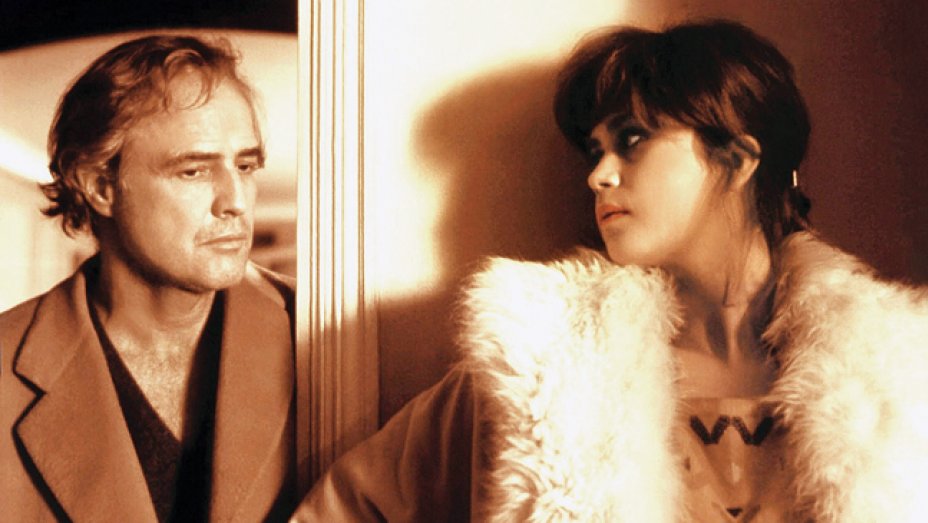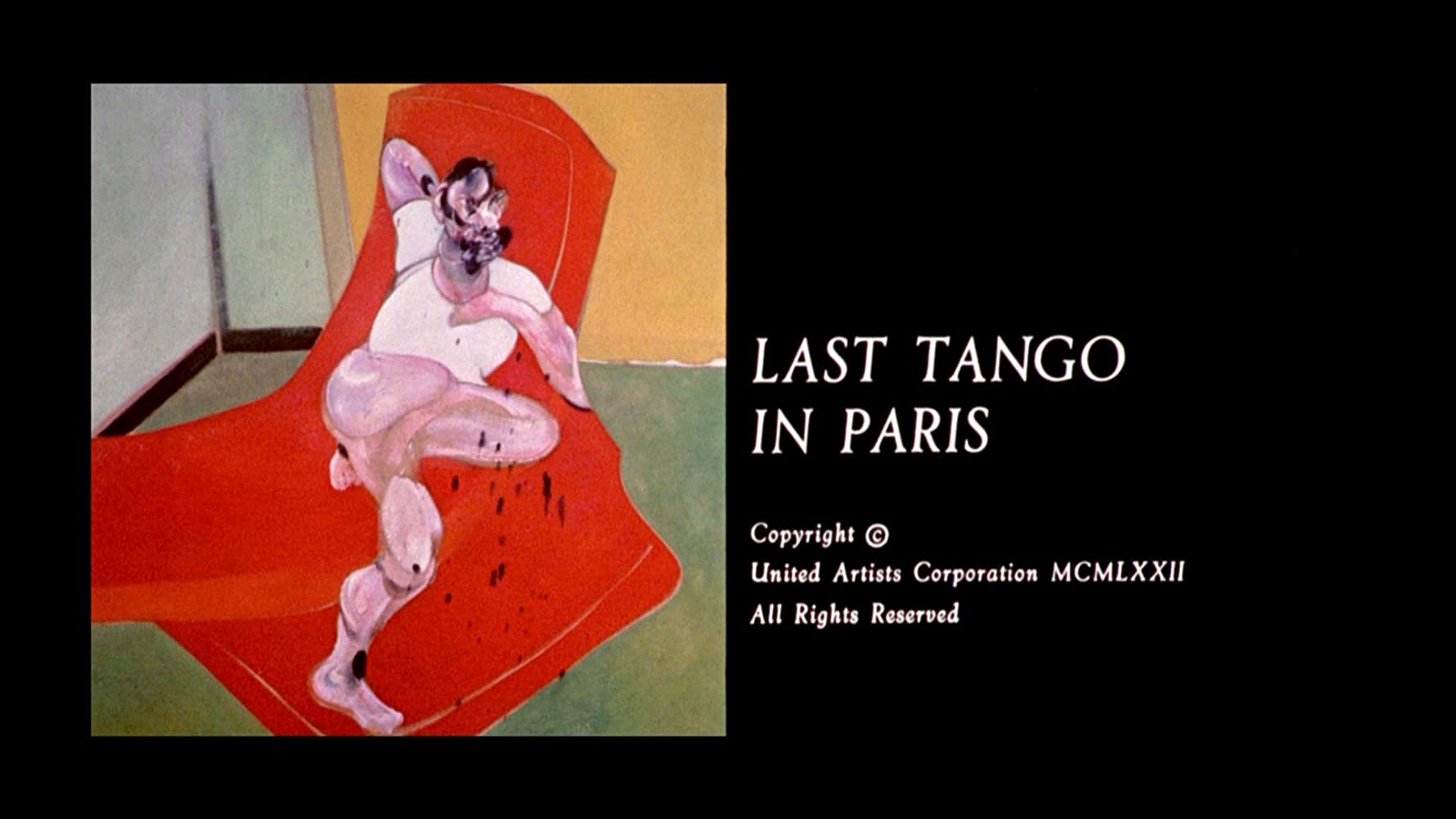
By Emad El-Din Aysha, PhD
“An artist should be as impartial as God.”
--- Wyndham Lewis
“The summary of the advice of all prophets is this; Find yourself a mirror.”
--- Shams Tabrizi
Well, as luck would have it, some time ago I’d written a review of an annoying Egyptian drama series for a magazine, still unpublished to this day, and it seems it got rejected because of it exposed how men were being deliberately targeted on feminist pretences. And phoney feminism at that, given that the directors and producers were invariably men themselves. Here’s a little snippet for your discretion.

The boy in the crosshairs
The serial in question was Taht Al-Saytara (Under Control), an erstwhile drama about drug addiction. You have Mariam (Nelly Karim) and Hania (Jameela Awad), the so-called heroines. Mariam, typically, is constantly pulling the wool over her husband’s eyes, Hatem (Dhaffer L’Abidine), over absolutely everything. She doesn’t want to have kids so avoids having sex with him, in the very first episode, forcing him to eat a sexually stimulating food all by himself. The next day she heads off to the hotel gym to exercise her anxieties away without his permission or knowledge. He spies her heading off, even doesn’t inquire where she’s headed and then dozes off. You can recognize this a mile away if you live here, the husband who is nayim al nafsu (sleeping his life away, oblivious to what’s going on behind his back). Then he learns that his wife was an addict and was once involved with a fellow addict who’s trying to rekindle his relationship with her.
Hatem finally gets a divorce, then marries a bimbo and wriggles out of that marriage by pretending to be a former addict himself. That’s not very up front and manly, is it? He’s portrayed as a wuss who can never look his wife in the eyes, as physically tiny as she is, and pushes his lower lip out too much for some reason. Then there’s junkie Tarek (Ahmed Shafik) who keeps falling back into addiction, with no explanation on offer save that he was spoilt by his father. His wife Salmah (Ingi Abu Zaid), who has put up with him for all these years, gets her revenge by getting Mariam divorced (informing Hatem of the long-gone relationship) then gets an abortion when she finally decides to leave Tarek. (Later she becomes Mariam’s confidante, in Mexican soap opera fashion). He roughs her up a bit for going behind his back (again) but no more. He could have had her imprisoned, since abortion is a crime here, and he should have if he was a ‘real’ man – which is the whole point. The controversy surrounding abortion is skipped over too. Then you have to endure a scene where Tarek’s younger brother dies from some bad drugs and, in typical form, he calls on Salmah to help him out and she spends half the scene scolding and belittling him like his obnoxious mother. (You can see why he became a junkie there, since he’s the first-born son who has to ‘assume’ the responsibilities of his deceased father). Not far behind is the tour guide Mizzo (Loai Omran) whose junkie wife has sex with other men in front of him, all in the effort to get another fix. This is the pimp stereotype we’re all too familiar with from the good old days of black and white Egyptian cinema. Even his name sounds unmanly.
Last but not least is Ali (Mohammed Farrag) who elopes with and later marries the underage Hania, again something that’s passed over without comment. (So much for women’s rights in Egypt. Whatever happened to banning under-aged marriages? Here her act is portrayed as romantic and ‘assertive’. Later she gets pregnant and loses the baby while trying to detox herself). At one point, after they both become junkies, Ali dumps her in the desert at night to negotiate a fair deal with a Bedouin drugs dealer and the man rapes her. He also steals his mother’s mobile phone to sell it for drugs money, and this during his (maternal) uncle’s funeral.
This is the awdat al-ibn al daal (return on the ungrateful son) stereotype, and Ali was an ass-kisser who loafed off of his nouveau riche uncle from the start. The upshot is, can anybody please tell me what any of this has to do with drugs? Absolutely nothing. A newspaper editor friend of mine, who has a medical background, gave up on the series after the first few episodes, when he saw that the medical details about drug taking were plain wrong. So the series was phoney from the start, and that’s despite the high production standards, good casting and stellar performances.
Arabs in TV land very rarely do anything of their own accord so if they’re doing all this at this level of sophistication, in private sector satellite TV, they must be following someone’s else’s lead, and that means almost by necessity cinema and TV in the West. Tango, again, a good analogy here given that we’re always on the receiving end – if you pardon the phrase – having to mindless ape them while they completely ignore us. No wonder then they got Dhaffer L’Abidine, someone who certainly looks ‘smooth’, and originally starred in Sex and the City, which hardly bodes well. A journalist colleague stopped watching Under Control early on because, as he said, it felt ‘imported’ and un-Egyptian. How true. Note the prayer Mariam recites whilst giving birth, through caesarean. I’d heard it before, Reinhold Niebuhr’s (1892–1971) Serenity Prayer: “God grant me the serenity to accept the things I cannot change, the courage to change the things I can, and the wisdom to know the difference.” There’s also a curious prayer scene where Ali is speaking to God and wondering why He doesn’t love him back. This is a moving scene but feels grafted from the God-the-father mode of worship, which isn’t Islamic to begin with. Let alone quoting from foreign prayer books, something which is strictly not allowed in our religion when it comes to acts of worship.
As if this wasn’t bad enough, cultural and religious differences that don’t transfer and translate well, there’s the cheap propaganda quality of a whole lot of TV that disqualifies it as art. I say this with a heavy heart but you can see this in the legendary comedy series Friends. Check out the hapless soul who is Ross Geller (David Schwimmer), a geeky character who teaches palaeontology and loses his wife to another woman. And that’s despite the fact that he’s a responsible nice guy who really loves his wife Carol and continues to love her even after she betrays him and he would love for them to get back together again. Then, to add insult to injury, it turns out his wife is pregnant with his baby and since Carol has custody, her new wife Susan also has custody by extension, and he’s treated like dirt by the child care services people because he’s a man – nothing more than a glorified sperm donor even though he’s responsible and cool and wants to be a dad and still loves his ex-wife. (And to think, I always thought loyalty should be rewarded by loyalty – see below). Contrast this to his wife’s new wife, Susan, a conniving woman that loves to rub it in, and is actually a bit too dedicated to her job to have time for Carol too. On one particularly offensive occasion when they’re discussing breast milk, for their son, Susan brags about how she knows what it tastes like, sneering at Ross.[1]
The implication being that the whole reason his wife left him for another woman is that he couldn’t satisfy her in bed, and do naughty and ‘stimulating’ things. And why is that I wonder? Because he’s a geek. What other reason is there? It’s great to see feminists picking on the least guilty of the white male species, the considerate, caring white boy who seems not to be manly enough in a woman’s eyes!
From sex to science fiction
You need a contrast to make better sense of this all, the difference between genuine art and propaganda that clearly turns serious in-depth characters into mere mouthpieces for authorial intent. In one especially despicable scene in Last Tango you have Jeanne describing her first orgasm, which came out of the blue, and then describing how she failed to replicate it on purpose afterwards. This is the oldest one in the book, men thinking of woman as sexually ‘inexplicable’; I won’t comment further so as not to offend anybody, myself included. Again, Bertolucci clearly had problems of his own growing up and came to see the female body in yucky, confusing terms as a consequence. He probably also saw himself as a victim, like the director who gets accused of exploiting Jeanne; she’s meant to be the audience and the critics angry at his very bad species of ‘voyeurism’ (a term that pops up in The Dreamers, through the equally big-nosed French boy).

Now for the genuine work of art. A real work of art doesn’t ‘push’ a specific point of view, however noble and well-intentioned. A real work of art explores themes and a real artist is willing to question his or her perspective as a consequence. Hence, Black Mirror’s “San Junipero”. It’s more than a treat, it’s a mystery wrapped in a riddle in an enigma. It keeps you guessing throughout, even about the tropes and motifs being used and the direction of the flow of events, artistically hoodwinking you and trashing stereotypes in mainstream TV land. It’s a sci-fi episode where you have this nostalgia town called San Junipero where the old and terminally ill people go to live out their youthful fantasies, through a collective cybernetic experience. (Why else do you have the opening scene with Max Headroom?) Enter Yorkie, aka Mackenzie Davis, and you fall in love her from first sight. Her timidity, her sloped shoulders, her boyish shorts, her geeky gorgeous hair and her (last but not least) bookworm glasses.[2] (I assume Yorkie is short for Yorkshire; talk about woman as land, and from a pro-feminist work of art).
As a geeky, nerdy girl who clearly has no confidence in herself and no awareness of her prettiness in a man’s eyes[3], instead of going to the dance floor she goes to the video arcade – a nice controlled, definite setting with familiar computer games from the 1980s. While there a fellow geeky boy, with glasses just like hers, tries to find common cause her – he likes the same video games – and asks to play a game that involve partners, and she doesn’t understand that he’s trying to be nice and ask her out on a date. In a typically geeky shy fashion if you’re a guy you look for common interests, become friends first and then pop the big question. This scenario, at first, looks like the situation with Ross Geller and I almost fell into that trap but later you see the guy playing a dance game with the love interest of Yorkie, a bombastic bisexual called Kelly (played very passionately-sympathetically by the African-British Gugu Mbatha-Raw). There’s some reason for that extra scene, meant to signify that Kelly is not stealing anybody from anyone and that Yorkie should keep her options open and challenge herself to see what she’s really after. She’s so shy she not only avoids the boy she makes excuses not to do it with Kelly, even though Yorkie’s known all along apparently that she was destined to be lesbian.
Note that Ross Geller is the minority, dark-haired type – I presume Jewish – whereas his wife Carol has bleached blonde hair. So I suppose, in TV land, he’s the safe guy to pick on and make the butt of all the jokes. (I watched an interview once of David Schwimmer and he seriously hoped he wouldn’t end up as inept and unsuccessful as Ross in the women department). A Russian girl once explained to me that in American cinema and television they can never make the hero look good without making his sidekick look bad, the one exception being the old Miami Vice series. Even Due South suffered from that problem, and that was with a Canadian Mounty and about as politically correct as you can get.
Thank heavens then that the geek in San Junipero is blond. There is also a boyfriend of Kelly’s who she is trying to un-elope with – she needs Yorkie’s help for that – who is also blond, and the barman behind the counter that Kelly calls blondy. The 1980s setting is meant to signify, in my opinion, the beginning of a growing tolerance both for blacks and gays, with blacks in particular taking over the pop industry and determining what’s hip and what’s not.[4] The race symbolism is doubly important because you find out that the real Yorkie, not the cyber version in San Junipero, comes from a terribly religiously conservative family (probably from the Mid-West, the moral heartland), whereas Kelly is as cosmopolitan and self-confident as they come. (San Junipero as a name I presume is a reference to America’s non-English Latin, Hispanic heritage). The fact that Yorkie doesn’t know how to dance – Kelly tells her to follow her lead and copy her[5] – indicates that her religious, guilt-based upbringing disallowed relations with boys and dating and dancing. All the more reason for her to turn gay and all the more reason for her to experiment in the aftermath, with boys. Hence the blond geek and Kelly scene, also meant to signify that he doesn’t have a problem with bisexuality in a girl and that Yorkie should reciprocate.
The boy also doesn’t have a problem with her being tall, a point of sensitivity in many women, not knowing what men like or are looking for. I’ve met many an assertive, outspoken, energetic women that are sexy and good-looking that nonetheless ‘feel’ themselves to be geeks, just on account of their height or intellectual acumen. They don’t know that men like tall women, just assuming that men’s standards of beauty and femininity are like those of women; reinforced in their minds no doubt through rebukes in the girl’s locker room.
Yorkie’s homosexuality itself is suspect since she insists on falling in love, at first sight, with a black girl. Her equal opposite in classical alter ego fashion, hip and assertive and self-confident and a smooth operator where she’s shy and unsure of herself and feeling awkward all the time and tripping up in the romantic game, not unlike Emile Hirsch and Elisha Cuthbert in The Girl Next Door (2004). And that started out as a non-sexual ‘friendship’ relationship specifically because of the personality contrast. (The series is called ‘black’ mirror after all, and check out the repeated mirror makeovers Yorkie does when she’s by herself). This is just like John Nash and his imaginary playfriend in A Beautiful Mind (2001). There you have an inexperienced American up against a wily Englishman, a dark-haired dude up against a blonde guy, an erstwhile cold, calculating, solitary scientist up against an English literature party animal who can charm the pants off any woman. In point of fact you can even see a deep undercurrent of heterosexuality in MD’s performance.[6] You can hear it in how her voice unintentionally varies, with the husky tones slipping on occasion, and in the nervous set of her shoulders, even ‘after’ she’s had sex and feels liberated about her doubts. (Watching MD’s performances you find her body language is much more relaxed and her kisses more passionate when it’s with a guy). Female-female relationships are always complicated by imitation, admiration and usurpation. Witness Always Shine. Hell, witness Lindsay Lohan, Rachel McAdams and Lizzy Caplan in Mean Girls (2004).
Kelly has her downside too, her flaws I should say, trying to avoid love and while also forcing Yorkie to sweat it out waiting for her while she’s being chatted up by a boy. Her upshot is, and she says this, that loyalty should be met with loyalty – I swear I made the comment above before watching this. Unlike Carol, she sticks by her husband even after realising she was bisexual. (Gugu Mbatha-Raw is a skilled actress, with fiery eyes that turn her from a carefree party girl to a mature, determined and principled woman).
So, again, this TV episode is open-ended and I have to admire it and defend it despite my religious sensitivities. And that’s more than I can say for Last Tango or even Friends, let alone lacklustre, skin deep imitations in Egyptian TV drama. To recap on Friends actually the worst of it is that the people responsible for it probably weren’t gay themselves. They’re just tapping into a demographic in typical callus marketing fashion. And worse than that in Friends is that they didn’t even produce a proper gay-lesbian epic but had the main characters and couples all being straight. A stand-up comic from the US, a homosexual himself, made fun of the series on the Stand Up Show on television in the UK by saying that why on earth would somebody make a comedy about straight couples in the Village in New York, the city’s equivalent of San Francisco? They even took a jibe at bisexuals in one scene with Phoebe hinting that such people who can’t make their minds up may just be ‘kidding themselves’. But, again, they hint at this and claim that it’s what many people are saying, not a hard, cold, agreed on fact that research actually disproves.
It’s called trying to hold the stick from the middle, in Arabic, or be all things to all people as they say in English. If you’ve watched Robert Altman’s searing critique of Hollywood, The Player (1992), you’ll see firsthand how studios push the scriptwriter out of the picture and try to pander to all the different and conflicting biases at the same time, relying on headlines as a guide. They call it post-modernism nowadays, the same kind of meaningless world you see in San Junipero, a world perpetually caught in the past, glorying in nostalgic achievements without going anywhere, while also being a world where anything goes for eternity, allowing many to avoid real emotions and sacrifice in exchange for S&M type thrills. You feel this is an indictment of modern society with its own nostalgia mania and especially in the era of cyber sex and social media mania. Hence also the nastier part of San Junipero called the ‘Quagmire’, a word that denotes an entrapping cesspool, much like Vietnam and Iraq.
The automated computer complex that runs San Junipero has a social media engine look to it and the time-limits they have on cyberspace smack of pay-per-view while monitoring smacks of domestic spying. Oh and this is going to sound crazy but I think this earthly cyber heaven is modelled on the Islamic model of paradise, where the old aren’t allowed in till they turn young and which includes pretty black-eyed maidens and wine that doesn’t give you a hangover and pretty boys that died in childbirth. In all cases it’s a whole lot better than the brain-dead zombies of yonder who have nothing better to do than wallowing around in shopping malls like they were still alive, another American stereotype. (Canadian friends tell me they’re into zombie-infested malls too).

So, it’s good to see us geeky Mediterranean boys can still make a valuable and nuanced contribution to the world’s sexual imagination. Other than just being patronising, paternalistic critic types who expose the embarrassingly non-geeky Mediterranean species of director dude, that is!!!
----THE END----
Emad El-Din Aysha is a freelance journalist, academic researcher and translator. His is also an author and a member of the Egyptian Society for Science Fiction (ESSF). The opinions expressed in this article are his own.
NOTES:
[1] I’m giving my interpretation here but check this book out: Brent Malin, American Masculinity under Clinton: Popular Media and the Nineties «Crisis of Masculinity», Peter Lang Inc., International Academic Publishers (November 28, 2005), pp. 52.
[2] Being a bespectacled person myself, I obviously like Yorkie’s look. But there’s more to it than that. If you’ve watched Family Guy (Season 4; Episode 19), Peter’s ‘geeky’ daughter Meg joins a lesbian group and gives herself a butch voice, just so she can fit in and be part of a peer group and have friends who accept her as she is. But she’s not actually homosexual and she’s shocked to find you don’t have to be born that way to be gay, if you’re a girl. Wouldn’t you know it, Meg wears the exact same glasses as Yorkie!
[3] You can’t definitely take my word on this count. You’re always looking for a little of you in your soul-mate, so glasses are cool, along with a husky voice and strong shoulders and jawline. It conveys the sense that a girl is ‘one of the guys’, like you get with Rene Russo in the diner scene in Showtime and the beer scene with Mary Elizabeth Winstead in The Thing prequel, and so that a girl is not prissy and snobbishly superior. Who doesn’t like camaraderie. No wonder MD was so appealing as Anne in Always Shine; I didn’t find her bossy or demanding at all and as great as she was when she usurps Beth’s personality she’s still way cooler as Anna. And her version of Beth was sexier than the original too, a tall order given how sexy and talented Caitlin Fitzgerald is!
[4] Watch Havoc (2005) and you’ll find young, spoilt American white kids playing at being gangbangers and using the N-word and sticking up for their bros in the hood. They’re escaping their lonely, emotionally numb existence, especially the character played by the insatiably girlish Anne Hathaway. I also presume gangs appeal to them because it means a support network, an extended family-peer group of sorts. Something they don’t readily have. As for Hathaway’s character, there is a lesbian linkup (see below) but more importantly she gets involved with a Hispanic gangbanger. From experience with young girls you can’t help but note that even with regular girlfriends they’re concerned with difference, in terms of complexion, race and even religion. It seems two blondes blot each other out, making them feel uncomfortable, or two members of the same religion risking a tense, overly judgemental relationship. Hence, again Yorkie and Kelly.
[5] If you’ve watched the original Blade Runner movie you have the sushi bar scene where Deckard wants four fish chunks and the chef says no. Deckard thinks this is like a burger joint and you can have anything you want, whereas a proper chef knows what your stomach and mouth can handle, signifying that minority types are telling the whites what’s in and what’s not. Hence the commercial you hear about migrating to the off-world colonies, with the message brought to you by the Shimata-Domínguez Corporation, supposedly helping America into the new world. More like the last refuge of the whiteman!
[6] To recap on Havoc Anne Hathaway’s character also toys with a lesbian relationship with her closest girlfriend, not knowing what she wants out of life, who she is or even what she feels half the time. (The friend is blonde by the way). She has an active heterosexual relationship with her boyfriend but he ‘asks’ her to do unpleasant things and he basically treats her like a piece of meat, and she’s afraid of ending up like her parents who only kiss once a week, after being reminded to!






[…] of a character still traumatized from her childhood. She doesn’t don her thick boyish voice from San Junipero or Halt and Catch Fire. I presume that’s what she sounds like in real life; except when she’s […]
[…] When Jason goes into the bathroom to take a leak he doesn't knock on the door first to see if anyone is already inside; Mikey barges in too. That's not very polite but more than that its' not what men do since we don't like to go into a toilet to find someone taking a leak while standing; let only talking in the bathroom, a so-called girlish thing to do. Mikey is the only one who complains at Daniel touching him with his penis, and no explanation is given as to why Daniel never pulls his trousers up the whole time. Mikey is the new Ross Geller, in other words. (Jason and Daniel are more like Chandler Bing, who gets mistaken for being gay for being raised by his mom – hence the sex store scene where they looked for dildos on sale – and you can say something similar about Allan in the previous movie). People can believe anything they want to believe and are more than welcome to express it artistically and stir up the flaccid waters of debate on controversial issues. Hence, Paul Schrader movies like American Gigolo, Hardcore and Mishima: A Life in Four Chapters, William Friedkin with Cruising or the many French movies I've cited and the odd Egyptian movie I've written about in the past. (Not so much the Italians though, contra "San Junipero", the pick of the bunch). […]